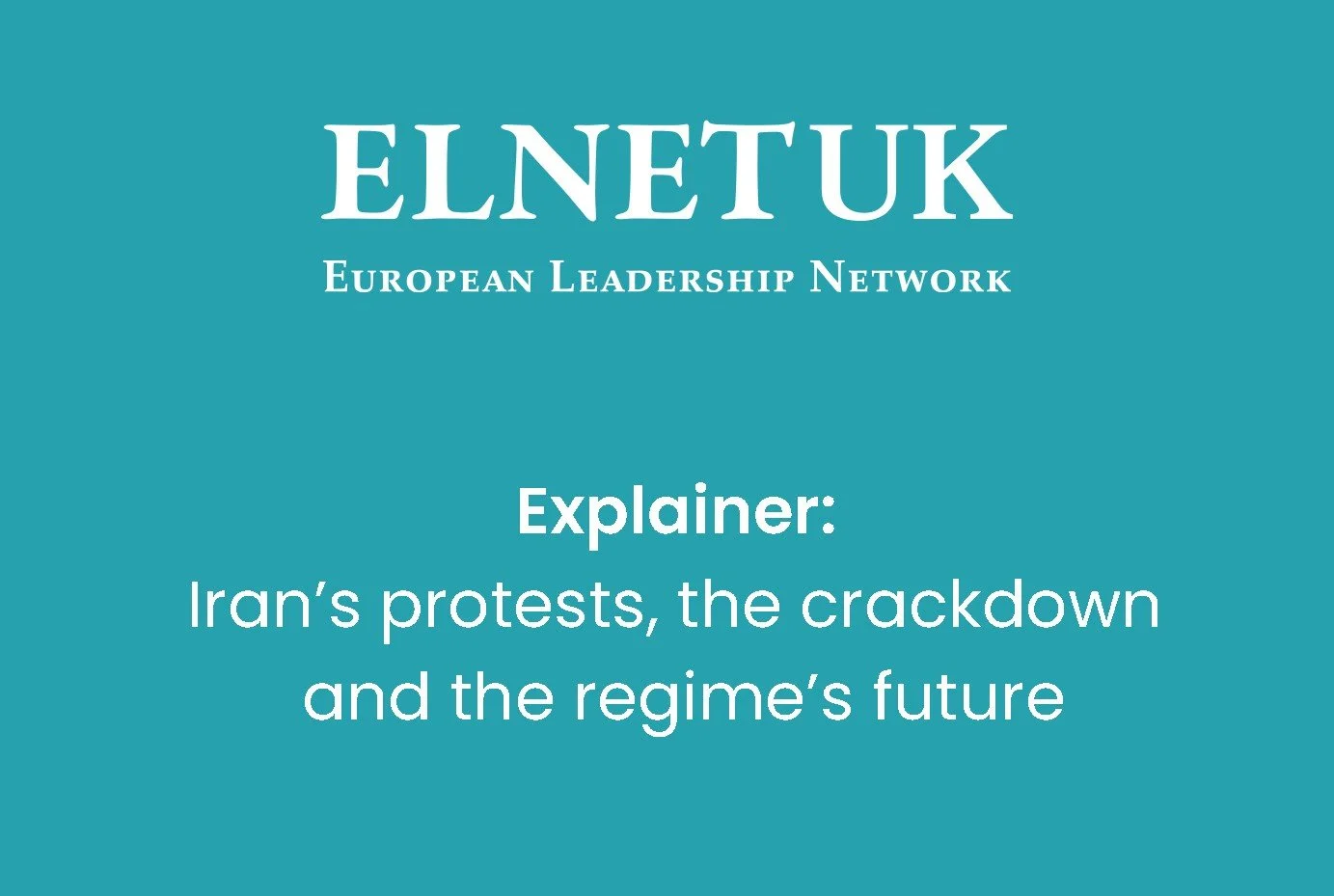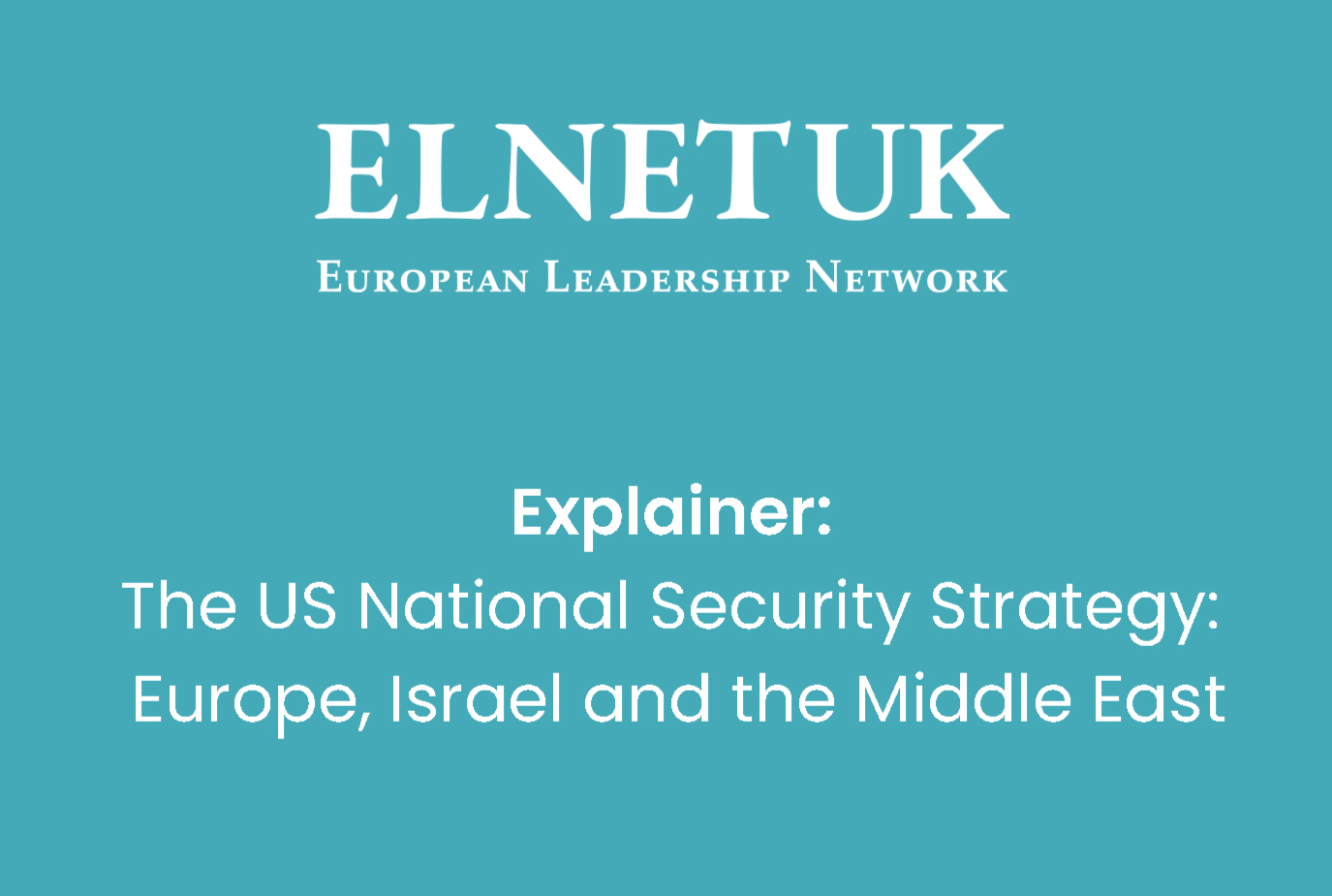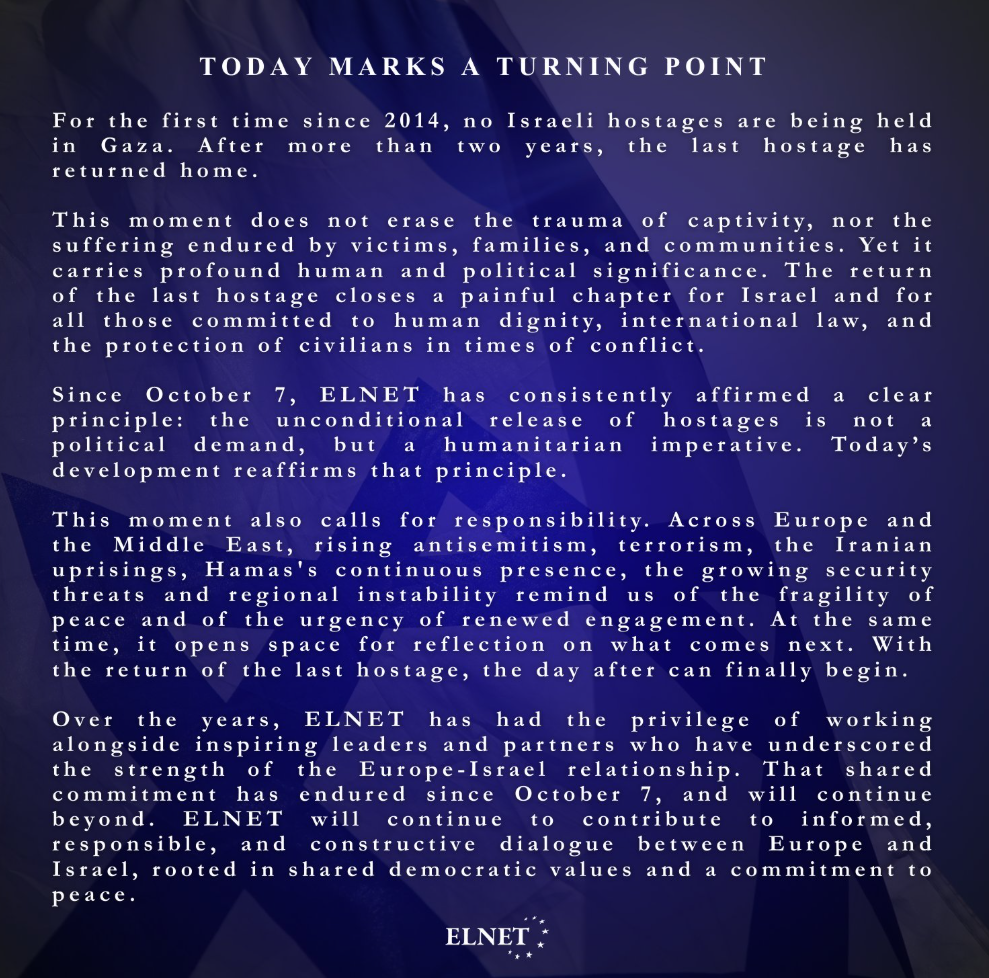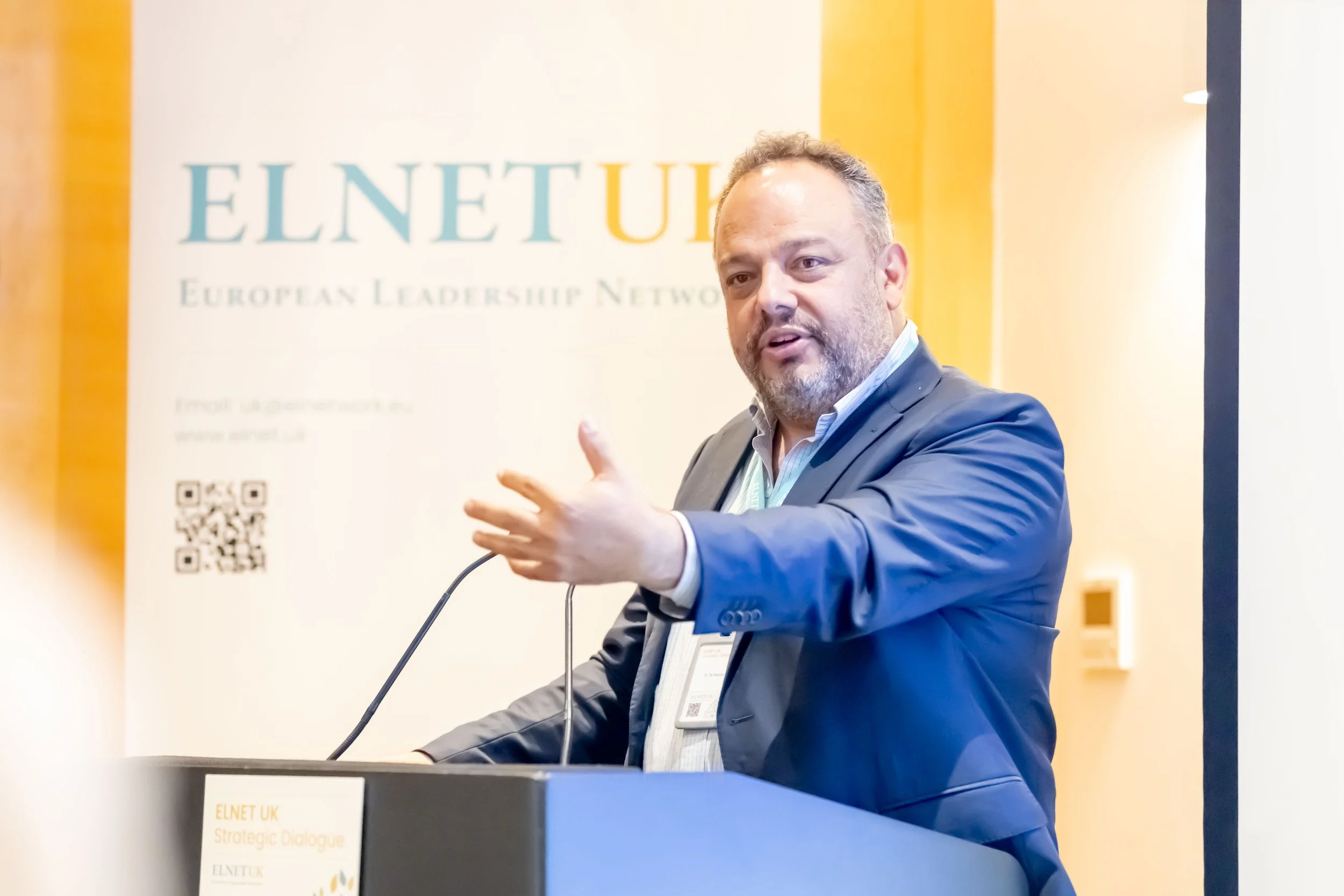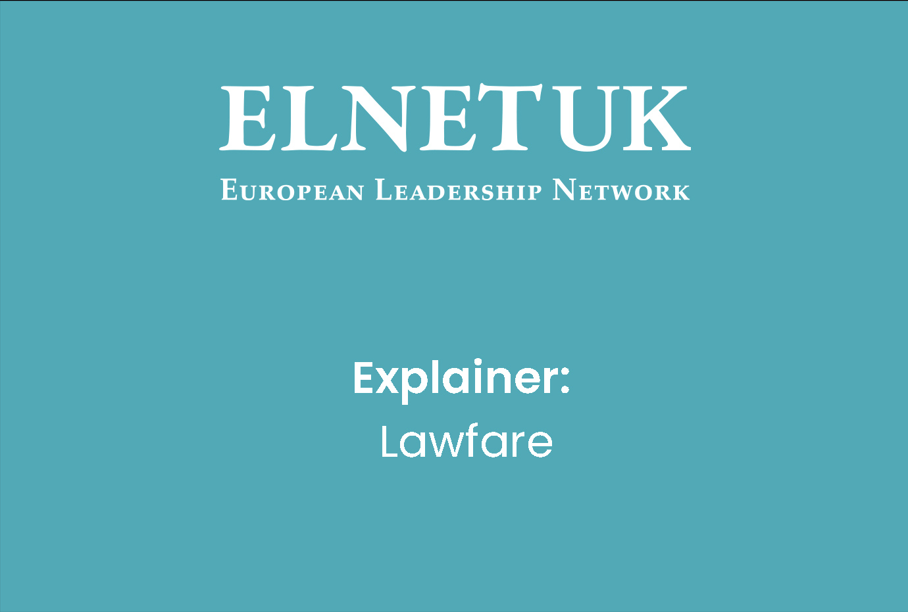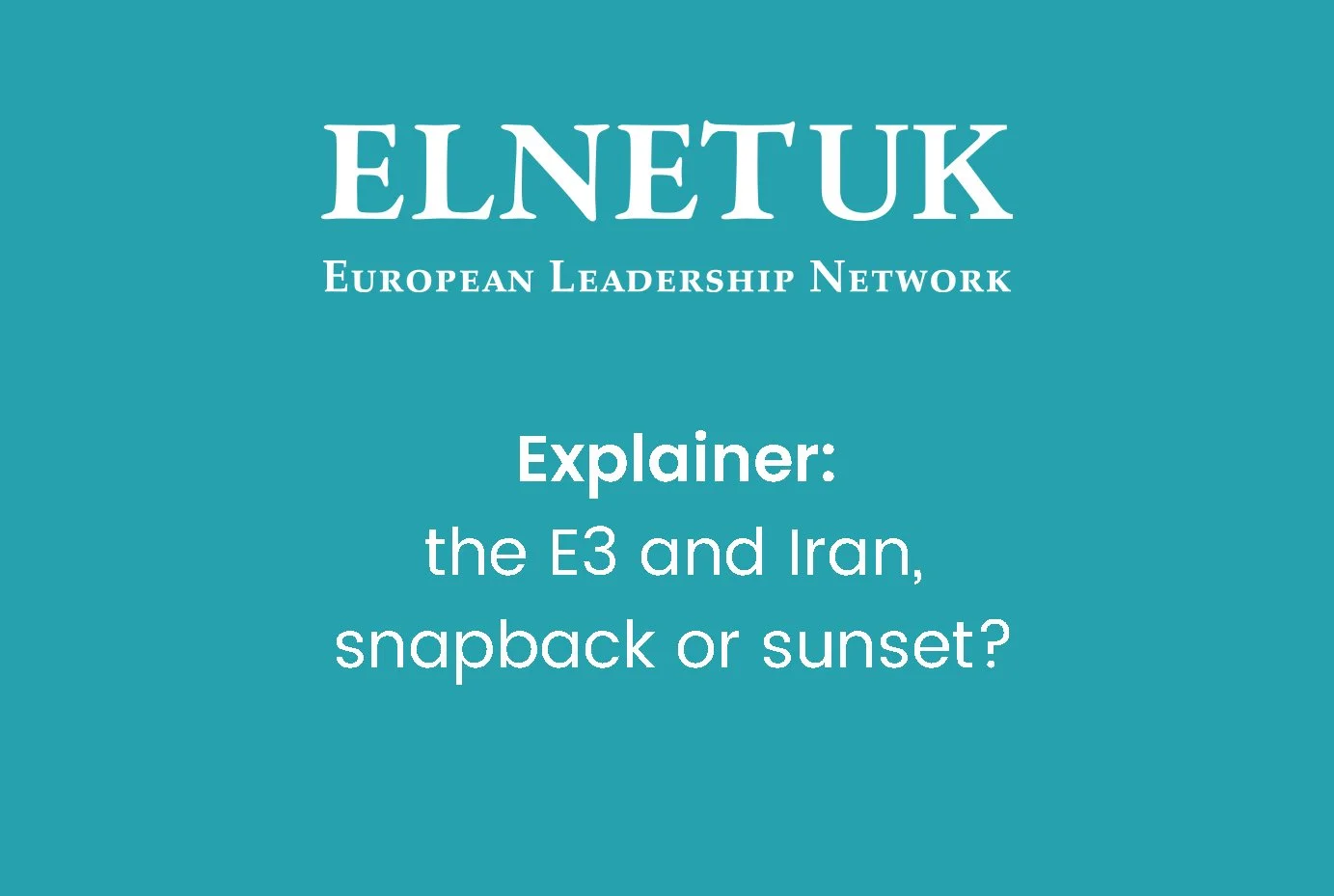EXPLAINER: Iran’s protests, the crackdown and the regime’s future
The Iranian regime appears to have weathered the most challenging and widespread protests against its rule since the 1979 Islamic revolution. But it has done so only by engaging in an unprecedentedly brutal crackdown in which thousands have been killed and imprisoned – with reports suggesting that mass arrests are continuing even after the protests have, for now at least, been quelled. The ferocity of what has been termed “a state-ordered massacre” is an indication of not only the existential challenge which the regime faces, but also of its weakness and vulnerability…
EXPLAINER: The US national Security Strategy: Europe, Israel and the Middle East
The latest in our Explainer series examines the Trump administration's 2025 National Security Strategy (NSS), released on 5 December 2025, and its implications for Europe, Israel, and the Middle East.
This document sets out a clear "America First" vision, sharply diverging from previous administrations by downgrading Europe (criticised for insufficient defence spending, economic decline, and civilisational challenges including migration and loss of national identity) while presenting a markedly more positive assessment of the Middle East…
ELNET’s statement following the terrorist attack at Bondi Beach, Australia
ELNET’s statement following the terrorist attack at Bondi Beach, Australia.
Strengthening ties - the 9th UK-Israel Strategic Dialogue, November 2025
The UK-Israel relationship stands at a crossroads two years on from the atrocities of October 7th, the subsequent conflicts, and now a somewhat contradictory malleable yet resilient ceasefire in Gaza. Read about the work of our Centre for Strategic Dialogue and the 9th UK-Israel Dialogue here.
EXPLAINER: Lawfare
The latest in our Explainer series examines how lawfare is weaponised against Israel, and explores its definition, origins, examples and impact.
Lawfare attempts to turn political questions into legal rulings which can, in turn, provide a veneer of legality and credibility for boycotts of, and sanctions against, Israel. At a minimum, lawfare seeks to circumvent the hard graft of negotiation and the compromises required to come to an agreement resulting in a two-state solution. At worst, it attempts to delegitimise and, ultimately, destroy the State of Israel – a tactic which is self-evidently incompatible with the pursuit of a two-state solution.
Explainer: Anti-Zionist antisemitism
The heinous terror attack at the Heaton Park Hebrew Congregation Synagogue in Manchester last week has highlighted once again the shocking rise in antisemitism in Britain following the 7 October atrocities and the ensuing conflict between Israel and Hamas. This is driven by a contemporary form of antisemitism – anti-Zionist antisemitism – which seeks to demonise and delegitimise the world’s only Jewish state. Its origins lay in a form of antisemitism developed in the Soviet Union, but it draws on and propagates traditional antisemitic tropes which have existed at least since Medieval times.This paper defines anti-Zionist antisemitism, explores its origins, and examines the contemporary examples and consequences of it.
ELNET Explainer: UK Recognition of the State of Palestine - reactions and implications
Alongside France, Canada, Australia, Portugal, Luxembourg, Malta and Andorra, the UK has formally recognised a Palestinian state. The decision follows Sir Keir Starmer’s statement in July which announced Britain’s intention to do so at the UN General Assembly meeting this month. This briefing examines the UK’s decision, laying out the government’s arguments, reactions in Britain and Israel, and assessing the potential implications.
The UN’s Politically Motivated Accusation of Genocide
As UNGA continues in New York, with Prime Minister Netanyahu expected to speak in the next hour, Sir Tony Blair’s Gaza plan (to form an interim government in Gaza and end the war) has been briefed in further detail; here is what we know…
ELNET Convenes European, Abraham Accords Partners in Abu Dhabi
Amid growing tensions between Israel and Gulf countries, ELNET's Forum for Strategic Dialogue convened dozens of high-ranking experts and policymakers this week in Abu Dhabi for its fifth Europe-Middle East Forum, "Fostering Security and Innovation through Strategic Partnerships”…
ELNET Explainer: The E3 and Iran, snapback or sunset?
ELNET UK’s latest paper explores the post 12-day war situation, concerning Iran’s nuclear ambitions. It explains the “snapback mechanism”, under United Nations Security Council Resolution (UNSCR) 2231 (2015), and how it allows automatic reimposition of UN sanctions (pre-2015 sanctions) on Iran for violations of the Joint Comprehensive Plan of Action (JCPOA). It examines what will happen post 18 October 2025 when all the measures set out in resolution 223, pertaining to nuclear activities, expire.
ELNET Parliamentary Snapshot July 2025
Calls for a Gaza ceasefire intensified in Parliament, with David Lammy branding Israel’s new aid system “inhumane”, urging immediate UN-led relief. Tensions spiked over the Government’s proscription of Palestine Action, with a bloc of MPs accusing ministers of criminalising protest. In the Lords, a fierce debate on rising UK antisemitism and the Syria-Druze crisis underscored mounting regional and domestic pressures. Keir Starmer faced renewed demands to clarify Labour’s stance on Palestinian recognition.
ELNET UK’s July 30th Statement on the prime minister’s conditions for recognising a Palestinian state
ELNET UK’s July 30th statement on the prime minister’s conditions for recognising a Palestinian state
ELNET's July 25th Statement following President Emmanuel Macron 's decision to unilaterally recognise a Palestinian state.
ELNET's July 25th Statement following President Emmanuel Macron’s decision to unilaterally recognise a Palestinian state.
The U.S. and Israel – inseparable allies?
The U.S.-Israel alliance has long been one of the most enduring partnerships in modern geopolitics, built on shared democratic values, mutual security interests, and deep military and economic cooperation. Since the establishment of the Israeli state, successive U.S. administrations have provided unwavering diplomatic support and substantial military aid, while Israel has functioned as a pivotal strategic partner in the geopolitically volatile Middle East. Yet beneath this durable bond lies a growing tension between perceived strategic alignment…
Explainer: Syria after Assad - Ha’yat Tahrir al-Sham, Israel and the road ahead
Syria’s future remains precarious, and a sustainable peace uncertain; given local rivalries, personal vendettas, and the threat from Islamist groups such as ISIS, all jostle for position post-Assad regime. For neighbouring states and international policymakers, the post-Assad era offers opportunities for strategic realignment but equally carries the risk of a renewed power vacuum if President Ahmed al-Sharaa’s government cannot govern and maintain peace. In this paper we examine the threats and opportunities for Israel, especially in light of the latest violence against the Druze in Syria, and Israel’s response.
Geopolitical Status Report: Israel, Jordan and Egypt’s quiet alliance
Since October 7th, the actions of Iran and its proxies, and the 12-day Iran-Israel conflict, have shone a light on existing alliances within the Middle East and how they may manifest militarily, in times of crisis. With hope of a ceasefire in Gaza approaching, and a new dawn in the Middle East, including Abraham Accords 2, We explore the historical impact and implications today of Israel’s peace agreements with Egypt (1979) and Jordan (1994) that have long served as the foundation for relative stability on Israel’s southern and eastern borders…
The Israel-Iran conflict: lessons about Russia, for NATO
The evolving geopolitical landscape in the Middle East has brought Iran’s military and diplomatic challenges into acute focus. Iran's recent experience, with its proxies largely cowed if not decimated by Israel, and finding itself in a direct confrontation with the U.S, would have been unimaginable pre-October 7th attacks, and certainly to an extent, even two weeks ago…
ELNET Parliamentary Snapshot: May 18th - June 18th
ELNET UK has produced a Parliamentary snapshot detailing all Israel-related activity and commentary from the House of Commons and the House of Lords over the past month.
ELNET Parliamentary Snapshot: iran - israel conflict
ELNET UK has produced a comprehensive snapshot of recent Parliamentary activity related to the Iran - Israel conflict, compiling all statements and discussions on the matter from both the House of Commons and the House of Lords over the past month.

